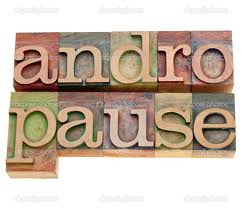What is Male Menopause?
An increasing number of men are having concerns about a decline in hormones during mid-life, as a result the words “andropause” and “male menopause” are starting to be seen everywhere. It used to be called a “mid-life crisis”. A more accurate label is the term male menopause, for the sometimes distressful and very real condition. Men are relieved that it is no longer called a silly crisis; there are a number of reasons for the decline that occur mid-life.
 |
| Image Source: depositphotos.com |
Some physicians refer to the problem as testosterone or androgen decline in men as they are aging since there is not a period that is well defined and referred to as menopause. It is also known as low testosterone. The production of testosterone declines as men begin aging but diabetes and other conditions can cause the decline in the male hormone production.
The decline in testosterone that is experienced, can come with some symptoms including:
- Depression
- Fatigue
- Sexual problems
- Weakness
The difference from female menopause is that the decline in testosterone that men experience happens slowly. In women the production of hormones stops completely. The substance that is needed to produce testosterone is not depleted entirely from the testes, unlike with the ovaries. Men that are healthy could be able to produce sperm well past their eighties.
 |
| Image Source: desertsierramedical.com |
There may be subtle changes that occur in the testes from the ages of forty-five to fifty years of age, and after the age of seventy some men may experience dramatic changes.
How Is Male Menopause Diagnosed?
There are some things that the doctor will do to diagnose male menopause.
- Question you about symptoms
- A physical exam will be performed
- Rule out medical problems that could contribute to the condition by ordering tests
- Order blood tests. These tests may involve measuring testosterone levels.
Can Male Menopause Be Treated?
Testosterone replacement therapy might provide some relief to the symptoms of low levels of testosterone.
- Fatigue
- Depression
- Decreased libido (loss of interest in sex)
- Morning erections decrease
- Sexual intercourse frequency declines
- Testicular and genital size decreases
- Body fat increases
- Memory loss
- Changes in mood
- Vagueness
- Gynaecomastia (enlarged nipples)
There is the potential for side effects and risks with testosterone replacement therapy just like there is with the therapy for replacing hormones in women. An example would be that prostate cancer could be made worse by the testosterone replacement.
Speak with a doctor to learn more when considering replacement therapy for androgen. There may be lifestyle or other changes recommended by your doctor to aid with the male menopause symptoms. These could include:
- Antidepressant or other medications
- Diet
- Program for exercise
Alternative Male Menopause Treatments
- Vitamin C
- Zinc
- Exercise
- Multi-mineral supplement
- Multi-vitamin supplement
- Soy
- Vegetables that contain indole- (brussel sprouts, broccoli, cauliflower, cabbage)
- Ayurvedic herbal remedies
- Grapefruit should be avoided
- Alcohol should be avoided
- Ayurvedic dietary changes
Tammy Mahan has been a nurse for 20 years. In her free time she works as a freelance medical/health writer for Healthline.com.
Comments
Post a Comment